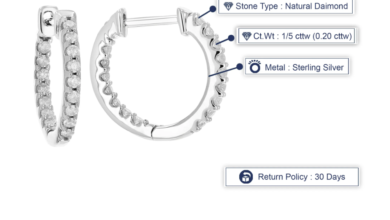
Maintaining the integrity and safety of Liquefied Petroleum Gas (LPG) vessels is paramount in the maritime industry. Regular maintenance and thorough inspections ensure the vessels operate efficiently, safely, and in compliance with international standards. This article delves into the essential protocols for LPG vessel maintenance, ship inspection standards, preventive maintenance for LPG ships, and the importance of LPG vessel safety checks.
Importance of Maintenance and Inspection
The transportation of LPG involves handling highly flammable and pressurized cargo. Any failure in the vessel’s structure or systems can lead to catastrophic consequences. Therefore, stringent maintenance and inspection protocols are vital to prevent accidents, ensure the safety of the crew, protect the environment, and maintain the vessel’s operational efficiency.
LPG Vessel Maintenance Protocols
Routine Maintenance
Routine maintenance involves regular checks and servicing of the vessel’s machinery, systems, and equipment. Key areas include:
- Engine and Propulsion Systems: Regular oil changes, filter replacements, and engine tuning are essential to maintain performance and fuel efficiency.
- Cargo Containment Systems: Inspecting and servicing containment systems ensure they remain leak-proof and can handle the pressures and temperatures of LPG.
- Hull and Structural Integrity: Regular inspections and repairs of the hull prevent corrosion and structural weaknesses.
Preventive Maintenance for LPG Ships
Preventive maintenance aims to identify and address potential issues before they become serious problems. This involves:
- Scheduled Servicing: Following a planned maintenance schedule based on the manufacturer’s recommendations and operational history.
- Condition Monitoring: Using advanced diagnostic tools to monitor the condition of critical components and systems in real-time.
- Predictive Maintenance: Utilizing data analytics and predictive algorithms to forecast potential failures and perform maintenance proactively.
Ship Inspection Standards
Compliance with International Standards
LPG vessels must comply with international maritime safety standards, such as those set by the International Maritime Organization (IMO). Key standards include:
- SOLAS (Safety of Life at Sea): Ensuring that all safety equipment, including lifeboats, fire extinguishers, and alarms, are operational and meet safety requirements.
- MARPOL (Marine Pollution): Regular inspections to ensure that the vessel complies with pollution prevention measures, such as proper waste management and ballast water treatment.
- IGC Code (International Code for the Construction and Equipment of Ships Carrying Liquefied Gases in Bulk): Specific standards for the construction, equipment, and operation of LPG vessels to ensure safety.
Classification Society Inspections
Classification societies, such as Lloyd’s Register, DNV GL, and the American Bureau of Shipping, conduct regular inspections to certify that LPG vessels meet safety and structural standards. These inspections include:
- Annual Surveys: Comprehensive checks of the vessel’s hull, machinery, and safety equipment.
- Intermediate Surveys: Conducted every 2.5 years to assess the vessel’s overall condition and compliance with regulations.
- Special Surveys: Extensive inspections every five years that involve dry-docking the vessel for a thorough examination of its structure and systems.
Source: https://www.lr.org/en/services/classification-certification/
LPG Vessel Safety Checks
Daily and Pre-Voyage Checks
Daily and pre-voyage safety checks are crucial to ensure the vessel is ready for operation. These checks include:
- Emergency Systems: Testing fire alarms, sprinkler systems, and emergency shutdown mechanisms.
- Gas Detection Systems: Regularly calibrating and testing gas detection systems to ensure they can accurately detect leaks.
- Personal Protective Equipment (PPE): Ensuring that all crew members have access to and are trained to use PPE, such as fire-resistant clothing and breathing apparatus.
Onboard Safety Drills
Regular safety drills are essential for preparing the crew to respond effectively to emergencies. These drills include:
- Fire Drills: Simulating fire scenarios to practice evacuation procedures and firefighting techniques.
- Leak and Spill Response Drills: Training the crew to handle LPG leaks and spills using containment and cleanup equipment.
- Abandon Ship Drills: Practicing the procedures for safely abandoning the vessel and using lifeboats.
In Summary
Effective maintenance and inspection protocols are critical for the safe and efficient operation of LPG vessels. By adhering to rigorous maintenance schedules, complying with international ship inspection standards, and conducting regular safety checks, the maritime industry can ensure the safe transport of LPG. These practices not only protect the crew and environment but also enhance the vessel’s operational lifespan and reliability. As technology and standards continue to evolve, ongoing improvements in maintenance and inspection protocols will further bolster the safety and efficiency of LPG transportation.
